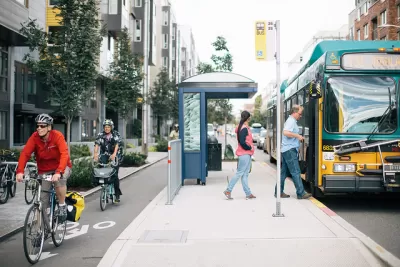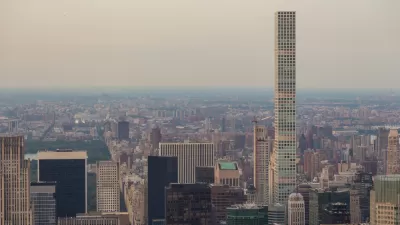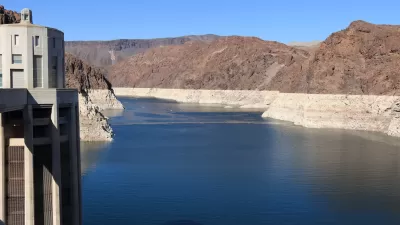As climate change brings prolonged, intense heat waves to cities once associated with rain and cold weather will have to attend to the lack of shelter provided to bus and transit riders.

Michelle Baruchman reports on the state of bus shelters in the city of Seattle, which has weathered a summer beset by record high temperatures—a sign of more heat waves to come as the planet's climate changes.
Baruchman cites data quantifying the city's bus shelters ("Of the approximately 7,500 Metro bus stops across King County, 1,700 have bus shelters…") before interviewing a question-and-answer session with researcher Kevin Lanza, who in 2019 published an article, along with Casey P. Durand, that explored the importance of bus shelters and trees for moderating heat.
In the interview, Lanza states that high temperatures are reducing transit ridership. In Lanza's words:
Trees have been shown to modestly reduce the effect of extreme heat on ridership or reduce the losses of ridership from extreme heat. Bus stop shelters don’t have that same association but both bus stop shelters and trees are proven heat management strategies that can in some specific instances be used exclusively or together to assist with climate adaptation of transportation networks.
While Los Angeles frequently makes news for transit shelter shenanigans, Seattle too passed up a chance to enter a public-private partnership to improve its shelters in 2018. The underfunding and mismanagement of bus and transit shelters is a nationwide problem, as detailed in an article from February 2020.
FULL STORY: How cities can help protect transit riders from extreme heat

Maui's Vacation Rental Debate Turns Ugly
Verbal attacks, misinformation campaigns and fistfights plague a high-stakes debate to convert thousands of vacation rentals into long-term housing.

Planetizen Federal Action Tracker
A weekly monitor of how Trump’s orders and actions are impacting planners and planning in America.

In Urban Planning, AI Prompting Could be the New Design Thinking
Creativity has long been key to great urban design. What if we see AI as our new creative partner?

Cal Fire Chatbot Fails to Answer Basic Questions
An AI chatbot designed to provide information about wildfires can’t answer questions about evacuation orders, among other problems.

What Happens if Trump Kills Section 8?
The Trump admin aims to slash federal rental aid by nearly half and shift distribution to states. Experts warn this could spike homelessness and destabilize communities nationwide.

Sean Duffy Targets Rainbow Crosswalks in Road Safety Efforts
Despite evidence that colorful crosswalks actually improve intersection safety — and the lack of almost any crosswalks at all on the nation’s most dangerous arterial roads — U.S. Transportation Secretary Duffy is calling on states to remove them.
Urban Design for Planners 1: Software Tools
This six-course series explores essential urban design concepts using open source software and equips planners with the tools they need to participate fully in the urban design process.
Planning for Universal Design
Learn the tools for implementing Universal Design in planning regulations.
Appalachian Highlands Housing Partners
Gallatin County Department of Planning & Community Development
Heyer Gruel & Associates PA
Mpact (founded as Rail~Volution)
City of Camden Redevelopment Agency
City of Astoria
City of Portland
City of Laramie





























